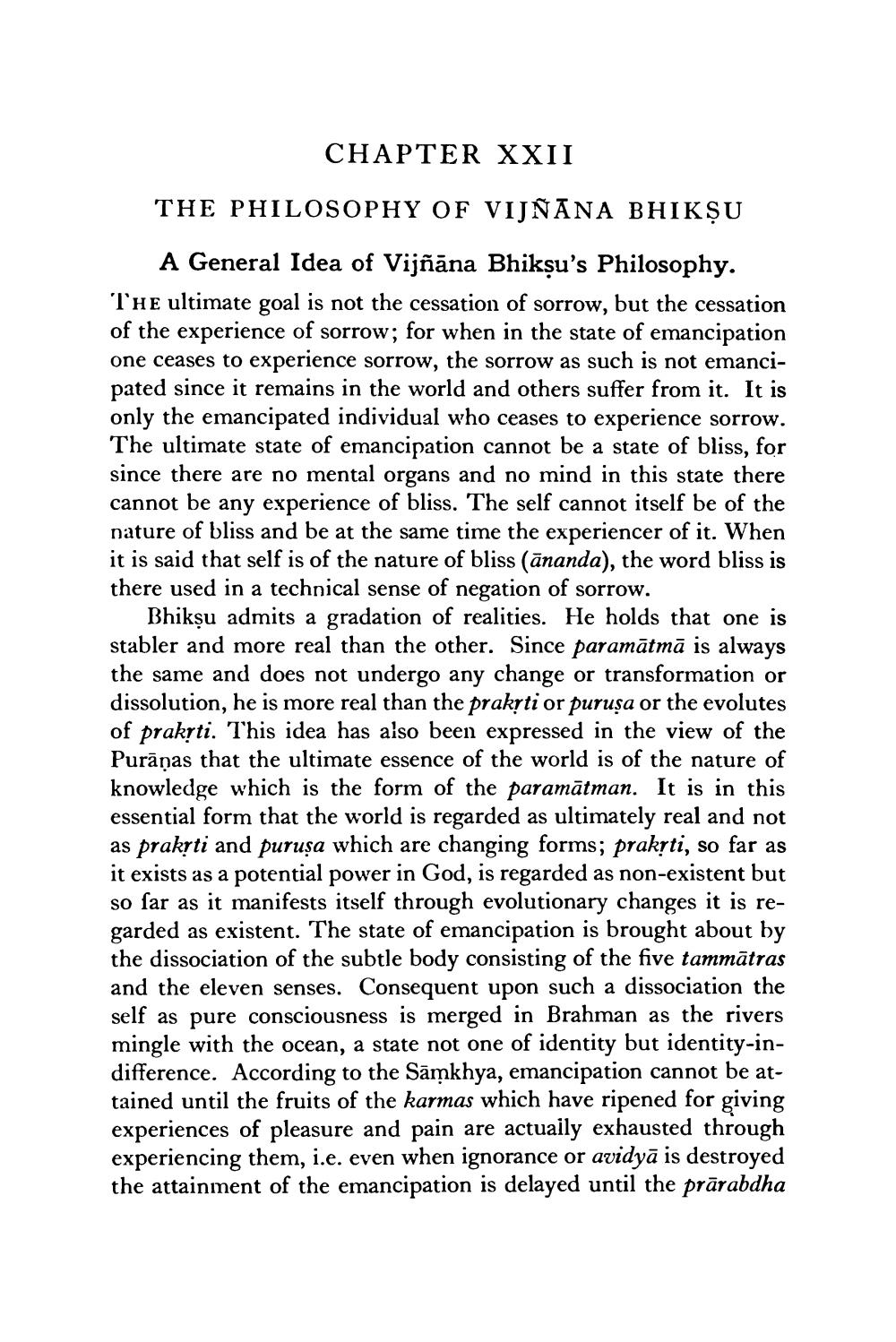________________
CHAPTER XXII
THE PHILOSOPHY OF VIJNANA BHIKSU
Pore
.
1
A General Idea of Vijñāna Bhiksu's Philosophy. The ultimate goal is not the cessation of sorrow, but the cessation of the experience of sorrow; for when in the state of emancipation one ceases to experience sorrow, the sorrow as such is not emancipated since it hains in the world and others suffer from it. It is only the emancipated individual who ceases to experience sorrow. The ultimate state of emancipation cannot be a state of bliss, for since there are no mental organs and no mind in this state there cannot be any experience of bliss. The self cannot itself be of the nature of bliss and be at the same time the experiencer of it. When it is said that self is of the nature of bliss (ānanda), the word bliss is there used in a technical sense of negation of sorrow.
Bhikṣu admits a gradation of realities. He holds that one is stabler and more real than the other. Since paramātmā is always the same and does not undergo any change or transformation or dissolution, he is more real than the prakrti or puruṣa or the evolutes of prakyti. This idea has also been expressed in the view of the Purāņas that the ultimate essence of the world is of the nature of knowledge which is the form of the paramātman. It is in this essential form that the world is regarded as ultimately real and not as prakrti and purușa which are changing forms; prakrti, so far as it exists as a potential power in God, is regarded as non-existent but so far as it manifests itself through evolutionary changes it is regarded as existent. The state of emancipation is brought about by the dissociation of the subtle body consisting of the five tammātras and the eleven senses. Consequent upon such a dissociation the self as pure consciousness is merged in Brahman as the rivers mingle with the ocean, a state not one of identity but identity-indifference. According to the Sāmkhya, emancipation cannot be attained until the fruits of the karmas which have ripened for giving experiences of pleasure and pain are actuaily exhausted through experiencing them, i.e. even when ignorance or avidyā is destroyed the attainment of the emancipation is delayed until the prārabdha




